Should I Be Eating a Certain Amount of Protein a Day to Lose Weight?
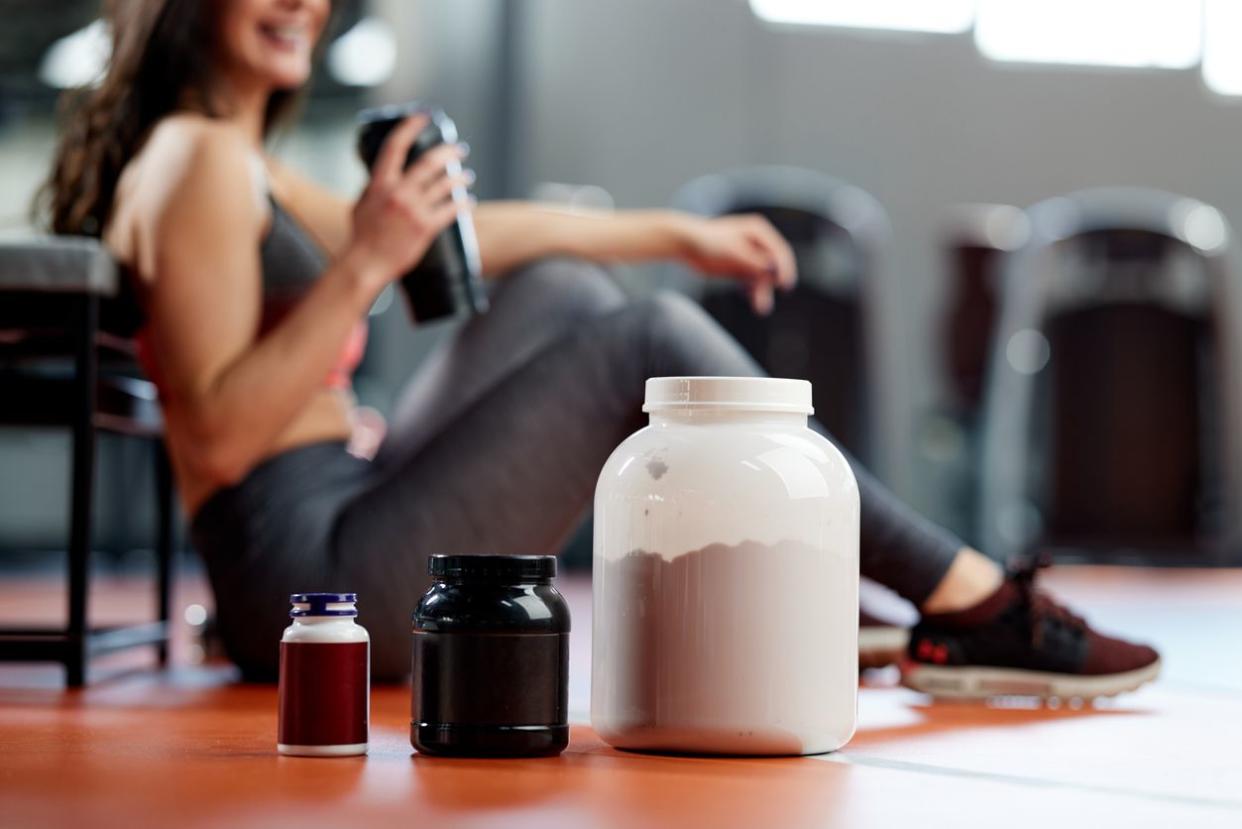
What does protein make you think of? Muscles? Bodybuilders? The food pyramid?
We’d like to add another thing to your list: weight loss.
That’s right. Protein is good for more than just “gains”. It can help you lose weight — you just need to eat enough of it.
So, now you’re probably wondering: How much protein should I eat to lose weight?
Why Protein Is Good for Weight Loss
Protein for weight loss sounds too good to be true, right? Greek yogurt for breakfast, eggs at lunch, chicken with dinner, a protein bar for dessert — boom, weight loss!
It doesn’t work quite like that, but the science is there.
Higher protein intake has been linked to:
Reduced body weight
Reduced fat mass
Retaining fat-free mass (like muscle)
Reduced belly fat
Protein doesn’t just help you lose weight, either. It may also help you keep the pounds off once you’ve lost them.
(Related: Healthy Snacks for Weight Loss)
Protein Helps You Feel Fuller
A high-protein diet increases your levels of the hormones glucagon-like peptide-1 (GLP-1), cholecystokinin(CCK) and peptide tyrosine-tyrosine (PYY). These hormones reduce your appetite.
At the same time, a high-protein diet decreases levels of the hormone ghrelin, which is known for increasing appetite.
This combo means you’ll feel fuller. Loading up on protein can stop you from overeating, leading to eating less food and losing weight.
That’s not all, though.
Protein May Reduce Cravings
Cravings are the enemy of anyone trying to lose weight, and protein may be your secret weapon to stop them.
One small study looked at teenage girls with overweight BMIs (body mass indexes) and obesity who usually skipped breakfast. For six days, they ate either a high-protein breakfast, a normal-protein breakfast or no breakfast at all. **stomach rumbles.**
At the end of the experiment, the results showed that eating breakfast — any breakfast — reduced post-meal food cravings for sweet and savory foods. But the high-protein breakfast led to a larger reduction in savory food cravings compared to the normal-protein breakfast.
Your Body Burns More Calories Digesting Protein
A high-protein diet also helps you burn more calories. That’s because protein has a higher diet-induced thermogenesis (DIT) than carbohydrates and fats. In simple terms, this means your body burns more energy digesting protein than carbs and fats.
It’s not a small amount, either. DIT is 20 to 30 percent for protein, five to 10 percent for carbs and zero to three percent for fats. So, if we take those upper limits, your body could burn three times as many calories metabolizing and storing protein than it does when you eat carbs — and 10 times more than fats.
Protein Helps You Keep Fat-Free Mass, Which Burns More Calories
Fat-free mass, which includes muscle, burns more calories at rest than fat mass. And protein helps you retain fat-free mass, even as you lose weight.
Increased protein intake can help you retain muscle when you’re eating in a calorie deficit. It comes with other health benefits, too, like limiting age-related muscle loss. When coupled with resistance training, eating lots of protein can boost strength and muscle mass gains.
So beyond keeping the muscle you already have, high protein intake can help you build more muscle. And more muscle is good news when it comes to losing weight.
High-Protein Diets Are Thought to Be Safe
There are a few fears around whether high-protein diets can mess with your kidneys. But that doesn’t seem to be the case.
According to a 2020 review, a high-protein diet hasn’t been linked to health problems relating to bone density and kidney function in healthy adults. It’s thought to be an effective and safe way to lose weight, prevent obesity and avoid all the nasty problems obesity can cause.
Buuut, while promising, the review noted that more research needs to be done. Ideally, we’d have studies spanning more than 12 months to back up these findings.
A 2016 study found that diets higher in animal and plant protein were linked to cardiometabolic benefits, especially improved belly fat. Both body mass index and waist circumference were inversely linked to animal and plant protein intake — i.e., the higher the protein, the lower the BMI and waist measurements.
More good news? There didn’t seem to be any impairment in kidney function.
One thing to be aware of is this study relied on self-reported data to determine protein intake. So, while promising, we’ve got to take the results with a pinch of salt.
After all, we all know how hard it can be to remember what you had for lunch yesterday.
(Related: Weight Loss Medications: Are They Effective?)
You May Need to Cut Your Calories and Eat More Protein
Unfortunately, you can’t just add an extra egg to your breakfast and expect dramatic weight loss. To lose weight, you may need to up your protein intake while reducing your overall calorie intake.
A 2020 systematic review and meta-analysis looked at 18 studies on protein and weight loss. It showed that eating more than the recommended daily allowance (RDA) of protein was more beneficial for lean mass compared to eating the RDA of protein.
Eating more than the RDA of protein was found to:
Decrease how much lean mass is lost after energy restriction (a cut in calories)
Increase lean mass after resistance training
But eating more than the RDA of protein didn’t affect lean mass when participants weren’t cutting calories or doing strength training. So to get some of protein’s weight-loss effects, you may have to be in a caloric deficit (aka burning more calories than you eat).
We don’t want to cause any beef, but not all research agrees with these findings.
The other 2020 review mentioned earlier stated that clinical trials have found that consuming more protein than the recommended amount can help reduce body weight and decrease fat mass while preserving fat-free mass — both when people eat a low-calorie diet and when they eat a standard-calorie diet.
The part we can all agree on: Protein looks good for weight loss.
How Much Protein Do I Need to Lose Weight?
Dietary Guidelines for Americans (DGA) state that adult women should eat 46 grams of protein daily, and adult men should eat 56 grams of protein per day.
But don’t be fooled. The current RDA of dietary protein is the minimum amount of protein you should eat to not lose lean body mass. To lose weight, your protein needs will be higher.
So how much protein should you be eating for weight loss, exactly? The answer isn’t straightforward.
In general, a high-protein diet is defined as getting 30 percent of your daily calories from protein. So if you eat 2,000 calories a day, 600 of those calories should be from protein sources.
High-protein diets are also defined as eating 1 to 1.2 grams of protein per kilogram of ideal body weight per day. But some experts suggest aiming for even more than this.
Some research has shown that 1.2 to 1.6 grams of protein per kilogram of body weight per day and at least 25 to 30 grams of protein per meal can improve your appetite, body weight management and cardiometabolic risk factors.
Another paper said that a whopping 2.3 to 3.1 grams of protein per kilogram of weight per day is advocated for those in energy restriction. Researchers noted that this may help you retain lean body mass during weight loss.
And a 2022 paper highlighted that we should be thinking about protein at every meal, not just across the day as a whole. Our bodies may not be able to use protein as well if we eat loads of it at dinner but get hardly any with our breakfast cereal. Still, there are no guidelines on how much exactly.
The exact amount of protein you need to eat to lose weight will depend on factors such as your:
Age
Sex
Goal weight
Consider speaking with a registered dietitian or a healthcare provider to get a personalized recommendation for how much protein you need to lose weight.
How to Increase Your Protein Intake for Weight Loss
To increase your protein for weight loss, you need to…eat more protein.
Sounds simple, but many of us struggle to eat enough protein-rich foods.
To increase your daily protein intake, start by thinking about protein at every meal. Include at least one protein source every time you eat, instead of leaving it until the end of the day and trying to cram all your daily protein needs into dinner.
You can also keep a food diary or use a nutrition tracker to work out how much protein you’re eating each day. Even if you don’t keep it up, tracking your protein intake for a few days can give you an idea of what you should aim for and what high-protein meals look like.
Here are a few protein sources to add to your grocery list.
Animal-Based Protein Sources
Animal-based protein sources include:
Meat. Meat can be anything from chicken and turkey to beef and pork.
Fish. Salmon, tuna, haddock and shellfish are all great options.
Dairy. Think milk, cheese and yogurt.
Eggs. Self-explanatory.
There may be some health risks linked to getting all your protein from animal sources, as these foods are often high in saturated fat and cholesterol.
Meat contains all the essential amino acids needed for various bodily functions. If you’re getting protein from meat, go for lean meat — like chicken breast or ground turkey — over processed meat — like hot dogs and ham.
Plant-Based Protein Sources
Shout-out to the vegans — you can get protein from plants. Even for meat eaters, plants can be a great way to eat healthier sources of protein.
Plant-based sources of protein include:
Nuts. Almonds, pecans, hazelnuts and cashews are all rich in protein.
Seeds. We’re talking sunflower seeds, pumpkin seeds, quinoa and flax seeds.
Legumes. Go for lentils, beans, peas and chickpeas.
Soy products. Tofu and tempeh are great sources of soy-based protein.
Protein Supplements
If you can’t get enough protein from your diet, protein supplements can help you hit your target.
There are many different types of supplements.
Protein supplements include:
Whey protein
Casein
Pea protein
You can get supplements in the form of protein powders, shakes, gummies and bars.
Want the science? A 2018 systematic review and meta-analysis found that whey protein supplementation can increase lean mass, especially when combined with cutting calories.
And one small study found that when participants had 20 grams of casein or pea protein before a meal, they ate less compared to those who just had water before the meal. Consuming casein or pea protein before a meal helped increase satiety — aka the feeling of fullness — compared to whey protein.
Starting Your Protein Diet for Weight Loss
Swapping soft drinks for salads, hitting the gym and getting eight hours of sleep — it can all help you lose fat. And from what we know so far, upping your protein can help you shed the pounds, too.
Here’s how:
Protein is good for weight loss and fat loss. Protein can help you feel fuller, eat less and burn more calories. For your body composition, it can help you lose body fat while holding onto lean muscle and even building muscle.
There’s no ideal amount of protein to lose weight. We can’t give you an exact amount of protein you should be eating per pound of body weight. But you should probably be eating more protein than the generic daily recommendation.
You can get protein from animals, plant sources and supplements. Add high-protein foods like chicken, eggs, milk, soy, nuts and seeds to your grocery list. And consider supplements (like protein shakes, powders and bars) if needed.
Move over low-carb and low-fat diets, the high-protein diet has entered the chat.
Worried about weight loss? There are plenty of weight loss treatment options for every type of person and every type of body. All you have to do is look.
This article originally appeared on Forhers.com and was syndicated by MediaFeed.org.
More from MediaFeed:
25 Weight-Loss "Tricks" You Should Stop Immediately

When it comes to diet and nutrition, we all want to find “the answer” that will fix our alleged problems. As a result, we often latch onto crazy diet ideas that, in the moment, sound like the perfect solution. But these too-good-to-be-true “solutions” can hurt more than help us in our attempts to achieve weight loss and gain healthy habits.
Here are some of the most common diet myths exposed.
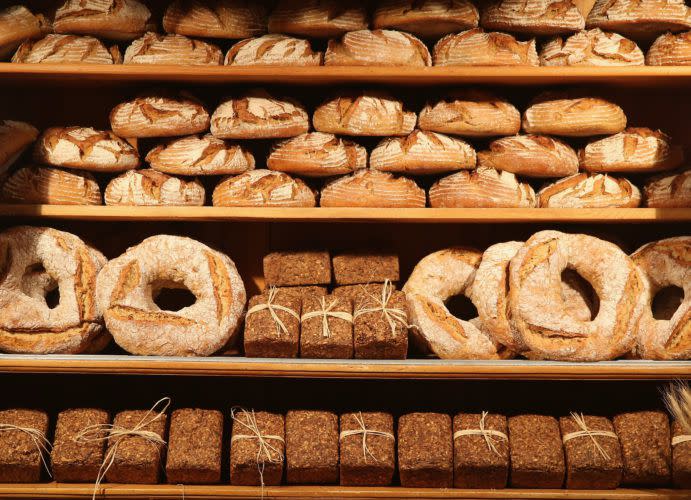
The protein-pushing keto craze sure makes it seem like carbs should be avoided at all costs. But do grains deserve their bad reputation?
“People often say that carbs are fattening,” says Kristin Kirkpatrick, MS, RD, LD. “But complex carbohydrates, like whole grains, are not ‘fattening’ foods.'”
In other words, avoid refined carbohydrates like white bread, rice and processed snacks, but keep those whole grains for a healthy balance.
Getty Images | Sean Gallup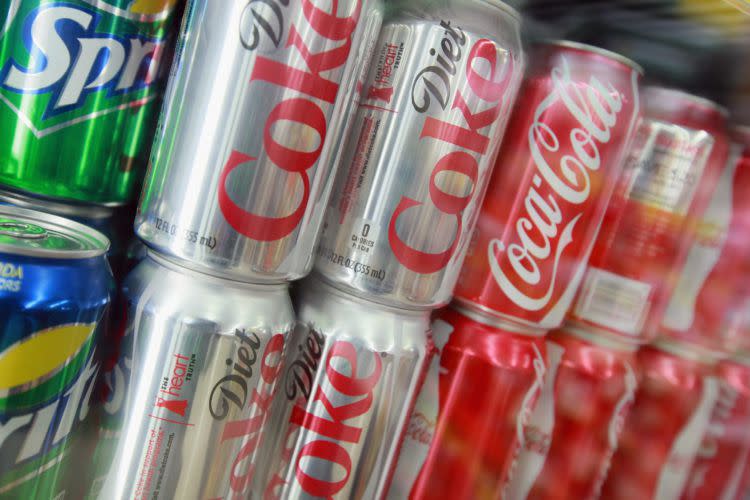
While diet sodas may be a better alternative than their full-sugar counterparts, medical studies are starting to show that the artificial sweeteners may actually cause us to eat more calories later in the day. If you want to keep the fizz and ditch the artificial sweetener, try flavored carbonated water instead.
Getty Images | Scott Olson
Like carbs, the type of fats we eat makes a difference. That, in combination with how many calories we eat each day, determines our body weight. Trans fats, typically found in many fried foods, can cause cardiovascular disease. However, saturated fats do not have the same effect and can, in fact, help keep us satisfied longer, leading to fewer calories consumed.
Getty Images | Lisa Lake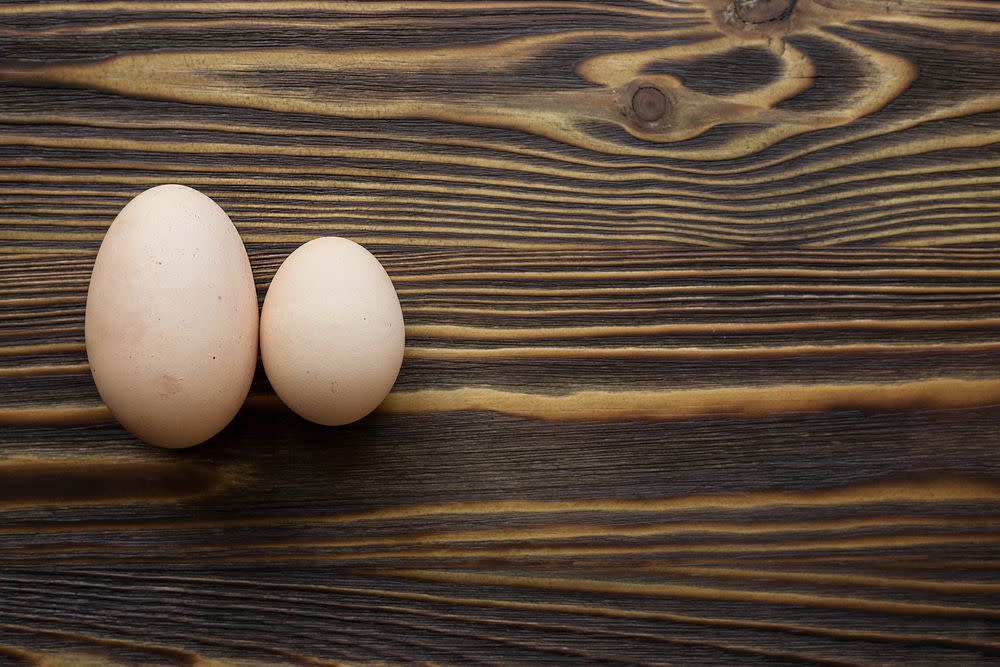
Maybe you’ve only been eating the egg whites to avoid raising your cholesterol. Well, maybe you don’t have to anymore.
“Unless you are genetically predisposed to high cholesterol or cardiovascular disease, eating the eggs AND yolks can actually help you,” says Darin Hulslander, CEO and owner of DNS Performance and Nutrition. “For one, yolks are high in antioxidants, vitamins, and minerals. Egg yolks also elevate high-density lipoproteins, which are the ‘good’ proteins that can help remove plaque from the arteries.”
DepositPhotos.com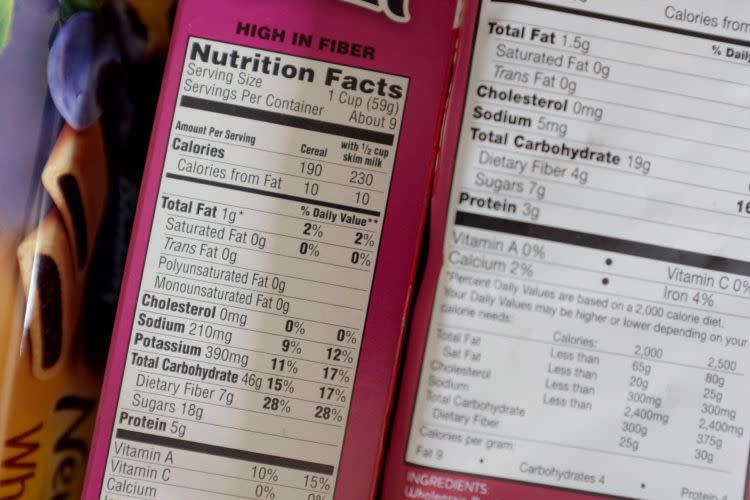
If you count calories, you might think losing weight is as simple as staying under a certain number every day. Unfortunately, this is not necessarily true. You can eat 200 calories of lean protein or 200 calories of chocolate, but the body processes each differently. Depending on what you eat, your body can store or burn more calories. So, use those calories wisely!
Getty Images | Joe Raedle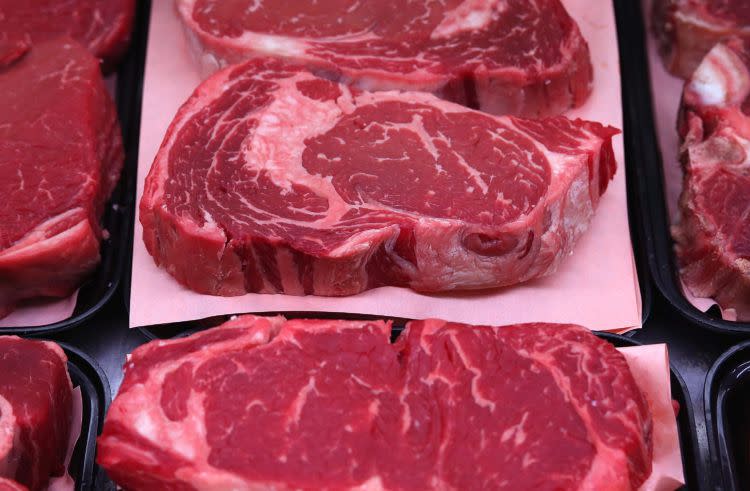
Reading headlines such as “red meat could lead to cancer” is frightening. And while some studies indicate there is an association with red meat consumption and cancer, it’s important to note that this doesn’t mean it causes cancer. Eating red meat in moderation is not dangerous.
Getty Images | Justin Sullivan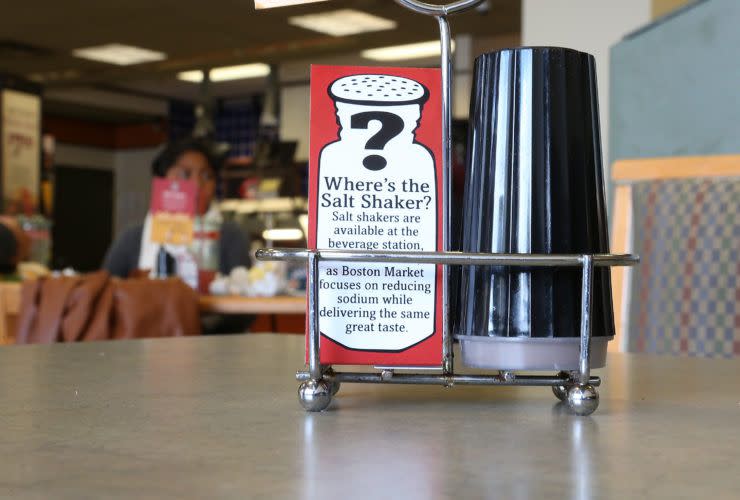
The American Heart Association recommends that people consume less than 1,500 milligrams of sodium (salt) each day. Excessive sodium can lead to high blood pressure. However, this doesn’t mean we have to eat bland food. Use salt in moderation and, if you have high blood pressure, talk with your doctor on the best guidelines for your individual needs.
Getty Images | Justin Sullivan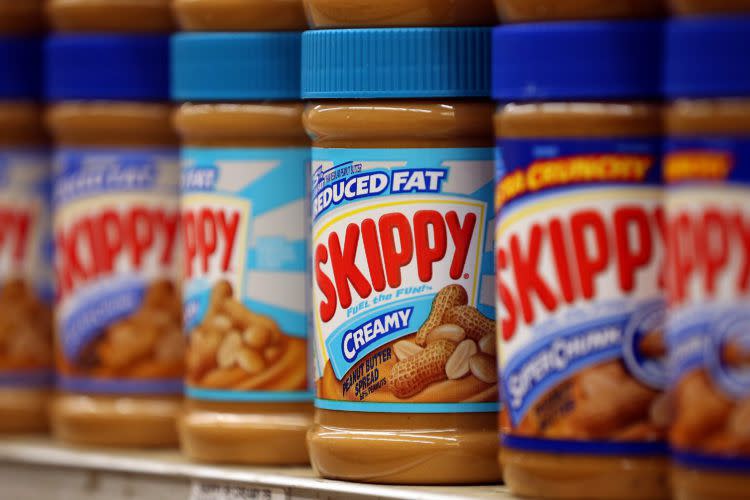
Sure, peanut butter is a good source of protein and fat. However, you need to be careful about what kind you put in your pantry. Many national brands of peanut butter are filled with extra sugar, fats and preservatives that counteract any health benefits. Check the label and pick up a jar with as few ingredients as possible to get the healthiest version of this favorite snack.
Getty Images | Justin Sullivan
Calories can’t tell time. The time of day of when you eat only matters if you tend to overindulge at the end of the day and eat too many calories. If you happen to eat a late dinner or snack but stay within your normal calorie range for the day, it should all even out in the long run. However, many people mindlessly eat at night because they are bored or tired, and this is what leads to weight gain.
Getty Images | Robin Marchant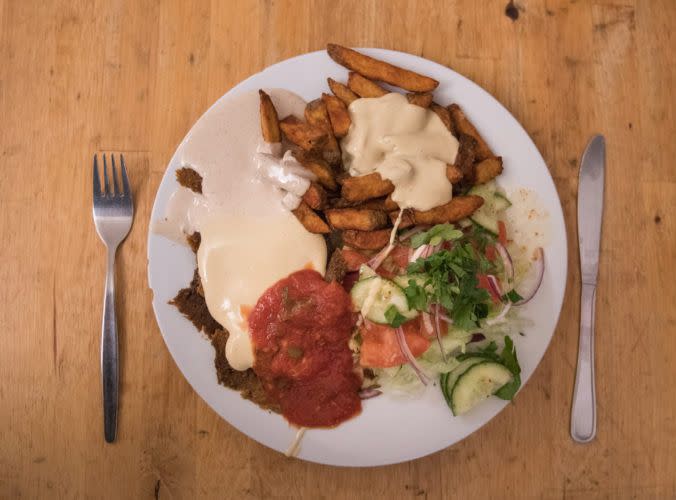
This is the one case where all calories are pretty much alike. Multiple studies show that eating the same amount of calories in either a few larger meals or more frequent smaller ones have the same outcome on the body. In other words, this is a case where 1,000 calories in a day are the same, no matter how often you eat during the day.
Getty Images | Steffi Loos
With labels like “Lean Cuisine” and “Healthy Choice,” it’s easy to think that pre-packaged frozen meals are not only convenient but also a better choice to help us in our diet goals. This isn’t always the case. Many of these pre-packaged meals contain too much sodium, which can lead to water retention and bloat. Also, many offer too few calories, which can lead to hunger later on in the day. Check the labels carefully and make sure you’re making the best choice.
Adobe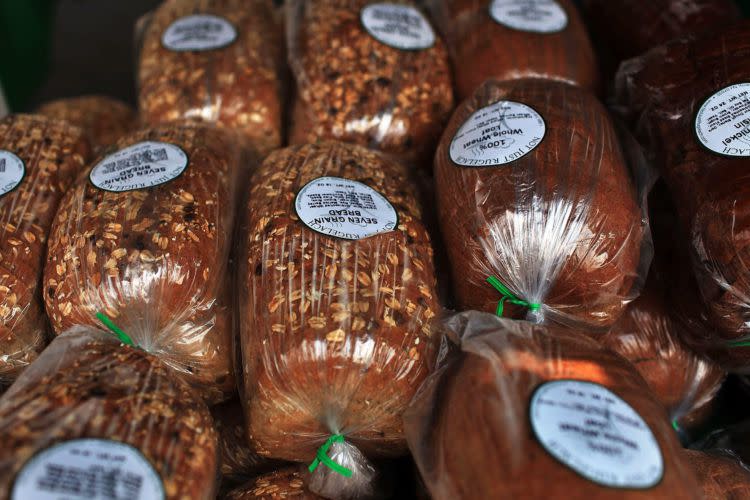
When looking to avoid processed carbohydrates, many people reach for wheat or multigrain bread over white. But be careful! Make sure you’re picking up 100% wheat or whole grain bread. Otherwise, you could be just be getting mostly white bread with a little wheat flour mixed in — or even just food coloring to make it look brown!
Getty Images | Spencer Platt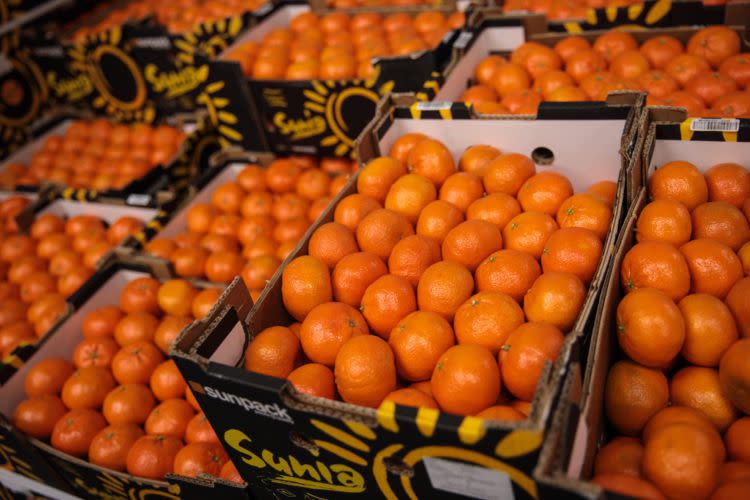
This nutrition myth has been around forever, but it’s just not true for most people. Medical studies show that among extremely active people such as marathon runners and skiers, taking at least 200 milligrams of vitamin C every day can possibly cut the risk of getting a cold in half. But for most people, taking daily vitamin C did not seem to actually reduce the risk of getting a cold.
Getty Images | Jack Taylor![<p>Wouldn’t it be great if there were such a thing as a negative-calorie food? You know, the kind that burns more calories when we eat it than it has? Sadly, there is no such thing, even when it comes to something as healthy as a piece of celery.</p><p>“Regardless of the [calories] in the food, you’re always going to be able to get something out of it,” says <a href="https://www.livescience.com/65233-negative-calorie-foods.html" rel="nofollow noopener" target="_blank" data-ylk="slk:Stephen Secor;elm:context_link;itc:0;sec:content-canvas" class="link rapid-noclick-resp">Stephen Secor</a>, a professor of biological sciences at the University of Alabama.</p><span class="copyright"> Getty Images | Sean Gallup </span>](https://s.yimg.com/ny/api/res/1.2/f837s4Ilr6lUhEWmw.Ucuw--/YXBwaWQ9aGlnaGxhbmRlcjt3PTEyNDI7aD04Mjg-/https://media.zenfs.com/en/aol_mediafeed_842/32085de7fa91402f2b43c04bad2a3024)
Wouldn’t it be great if there were such a thing as a negative-calorie food? You know, the kind that burns more calories when we eat it than it has? Sadly, there is no such thing, even when it comes to something as healthy as a piece of celery.
“Regardless of the [calories] in the food, you’re always going to be able to get something out of it,” says Stephen Secor, a professor of biological sciences at the University of Alabama.
Getty Images | Sean Gallup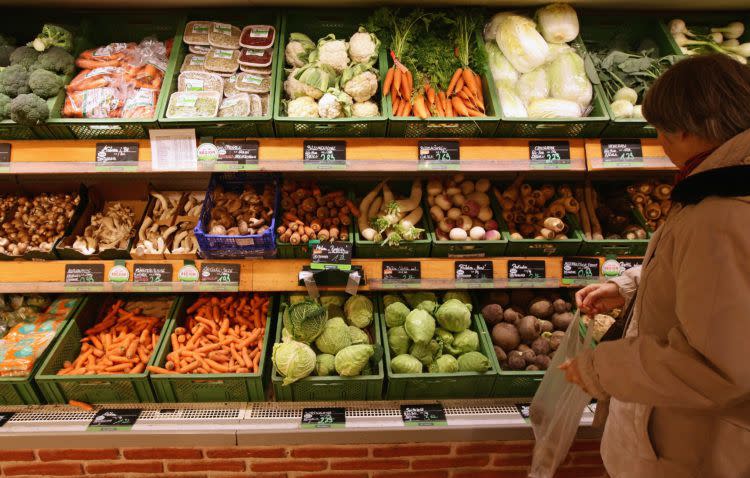
Organic is simply how ingredients are grown, usually pesticide-, herbicide- and insecticide-free. An organic label does not mean it’s healthier than non-organic foods. Even things like sugar, granola bars and boxed mashed potatoes can be organic. So, don’t rely on an organic label to tell you if something is automatically better for your diet.
Getty Images | Sean Gallup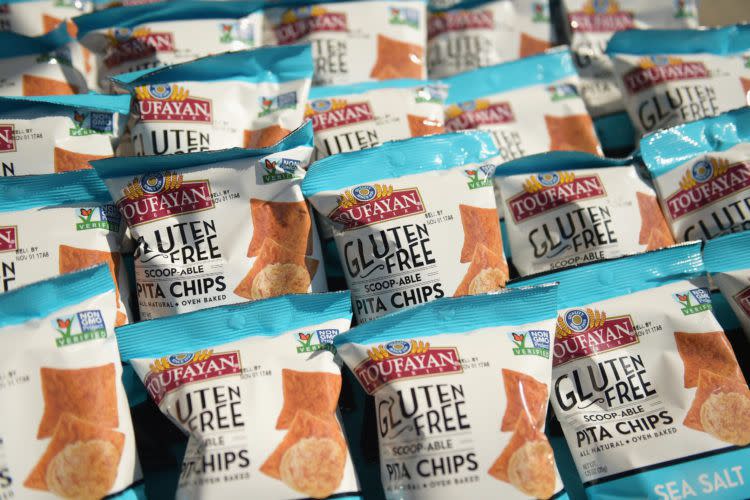
While cutting out gluten from your diet can help if you have celiac disease, it isn’t really a factor in weight loss.
“Unless you suffer from celiac disease, there’s not much scientific support to back the claim that eating gluten-free is healthier or a smart strategy for weight loss,” says Ashvini Mashru MA, RD, LDN. “Cutting gluten out of your diet most often leads to a reduction in overall calories, simply due to the sheer amount of grain-based foods that we eat on a regular basis.”
Getty Images | Jason Kempin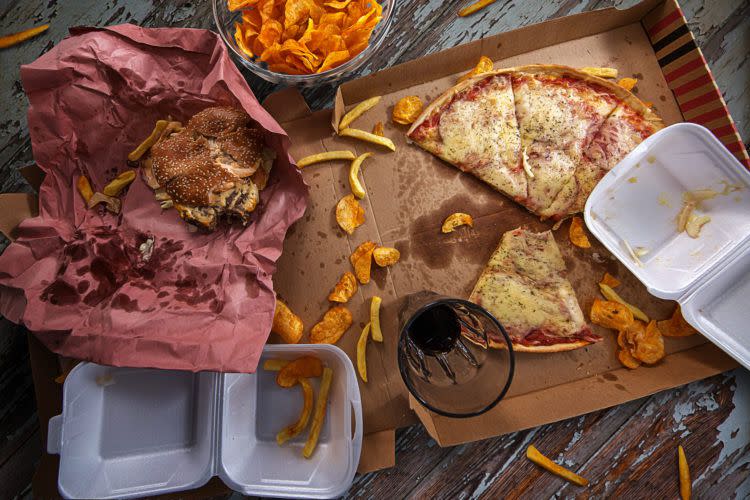
Fewer calories consumed means weight loss, right? Not so fast!
“In fact, studies have proven it to be the opposite: skipping meals promotes weight gain,” says Cheryl Forberg, RD, nutritionist for “The Biggest Loser.” “When we skip a meal, by the time we eat, we’re so hungry we consume too much, too fast and choose the wrong foods.”
Adobe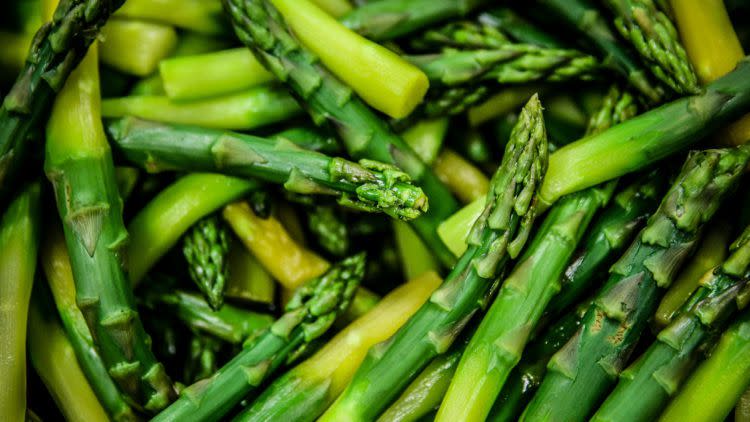
Foods like asparagus and lemons are known as natural diuretics. And while these kinds of foods may not hurt when it comes to holding onto excess water, eating large amounts of them will not help get rid of belly bloat or weight.
Getty Images | Miles Willis
Your daily cup of coffee may give you a good dose of caffeine, which is a stimulant to your body. However, that caffeine jolt does not boost your metabolism enough to be a weight loss cure-all. Also, depending on what you add to your coffee (cream, flavorings, sugar), you could be adding extra calories to your day. So if you love a cup of joe, keep it basic and black, if possible.
Getty Images | Bryan Thomas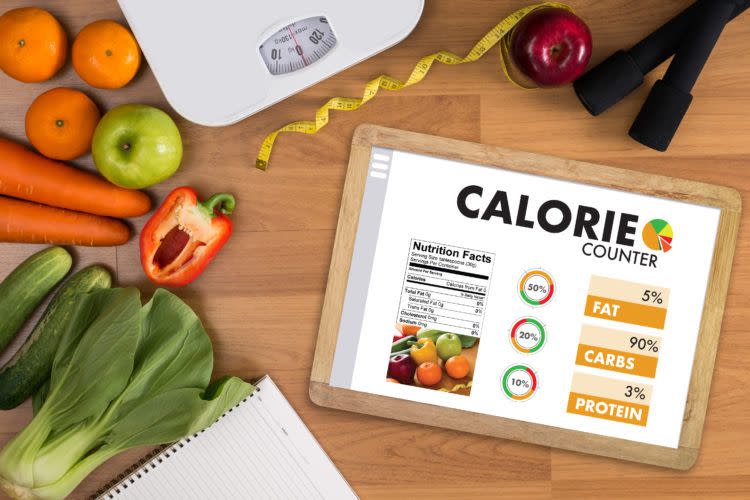
This is a short-term fix with many long-term problems. By severely cutting daily calories for extended periods of time, your entire metabolism can change to actually hold onto weight! Also, your body needs adequate nutrition to stay healthy. If you want to lose weight and keep it off forever, you need a modest calorie restriction plan that you simply continue and never stop.
Adobe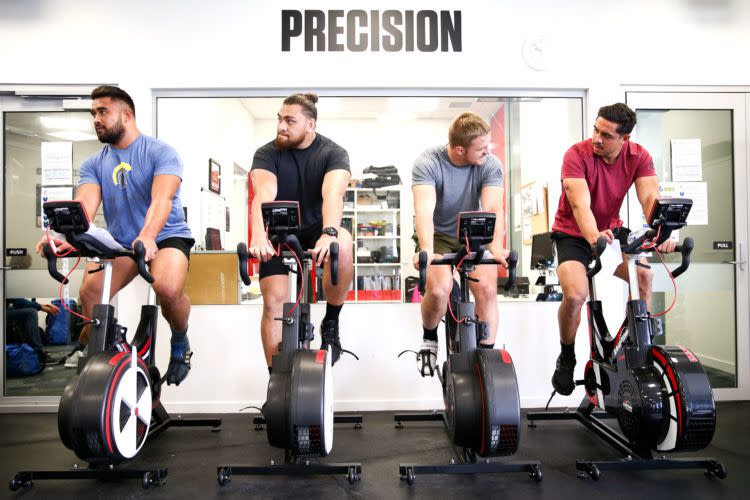
You cannot outrun a bad diet. It’s as simple as that. Exercise is great for our cardiovascular health and for building good muscle tone. And yes, it does help regulate our weight. But the amount of exercise you have to do to counteract a few extra slices of pizza isn’t sustainable or reasonable. So work in a healthy diet plan along with your regular workouts for optimal results.
Getty Images | Hagen Hopkins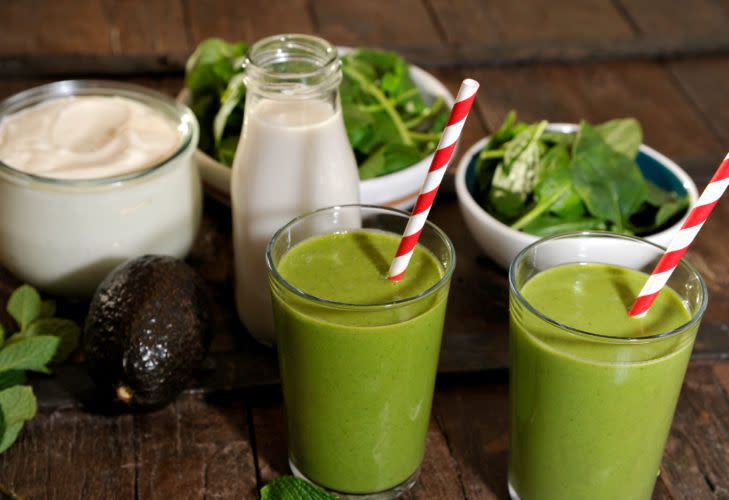
In a pinch, these convenience items are helpful in maintaining a healthy diet. But things like shakes and nutrition bars are not meant to be long-term replacements for healthy meals. Check the ingredients for artificial sweeteners if you buy these items. Your best bet: Make these at home and use them occasionally.
Getty Images | John Sciulli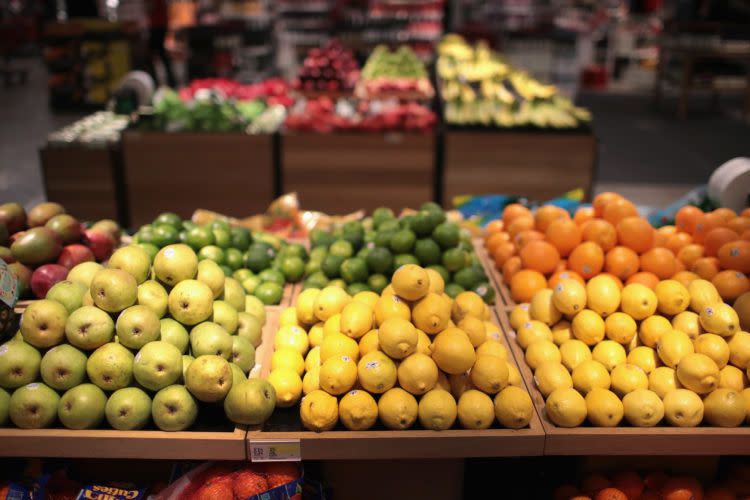
Yes, some people should probably cut back on sugar in order to make their diet healthier. But naturally sweet foods such as fruits are sources of important vitamins and minerals. The sweets to avoid are those with added sugars and syrups.
Getty Images | Scott Olson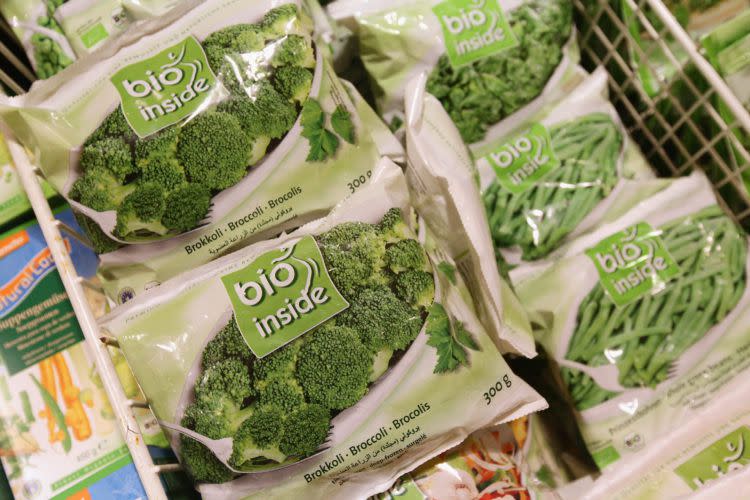
Good news! While fresh vegetables are always a healthy option, so are most frozen varieties. Over time, fresh vegetables can lose nutrients, while frozen ones can retain them longer. Make sure you pick up frozen vegetables without added sauces, cheese or sodium to keep them as close to fresh as possible.
Getty Images | Sean Gallup
Can you imagine life without ice cream, cookies or cake? You don’t have to in order to follow a healthy eating plan. In fact, planning to have some of your favorite treats occasionally can ensure you don’t feel deprived and end up splurging later on.
This article originally appeared on TheDelite and was syndicated by MediaFeed.
Getty Images | Monica Schipper